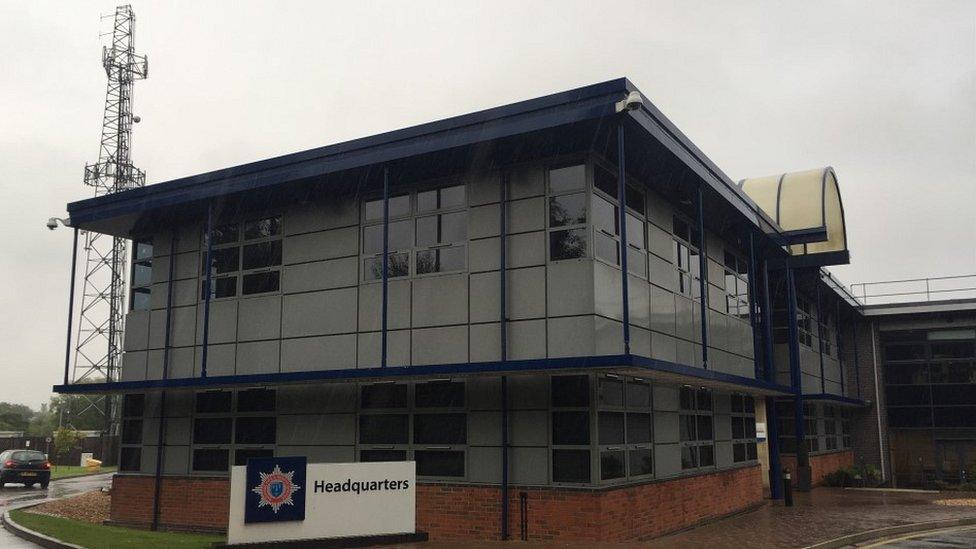Cheshire fire cuts plan prompts plea to change council tax law
- Published

Cheshire could become the first county to hold a referendum to increase fire service funding through council tax.
Councillors cannot currently request more than 2% without public approval.
Holding such a vote could cost too much, Cheshire's chief fire officer Paul Hancock has warned, prompting Fire Authority chairman Bob Rudd to request a lifting of the need for a referendum.
Local emergency services' funding will be revealed by the end of the year, the government said.
For the first time in seven years, a report has been prepared for Cheshire's fire authority exploring the possibility of asking for a 5% increase.
This would cost an extra £3.60 per year for a band D household, raising the authority an extra £831,000.

Background: Phil McCann, Cheshire Political Reporter
Labour-controlled Cheshire Fire Authority would have the job of formally asking for an increased precept in council tax bills. It does not automatically do what the fire service wants; its role is to hold the fire service to account on behalf of taxpayers.
The authority represents the whole of Cheshire, comprising councillors from its four local authorities (Cheshire East, Cheshire West and Chester, Halton and Warrington) and is chaired by Bob Rudd, a Labour Cheshire West and Chester councillor.
Every year the authority has to decide whether to seek an increased contribution from council tax payers. This is the first time it has ever investigated seeking more than the 2% currently allowed.
The idea of having a referendum was introduced by the Tory-Lib Dem coalition government as a way of preventing what it deemed to be excessive council tax hikes at a time of austerity. This co-incided with a reduction in direct grants to local authorities from Whitehall so was designed as a way of preventing local authorities from shifting the burden of reduced public spending on to hard-pressed council tax payers.

Cheshire Fire Service, tasked with making savings of £4m out of its £41.3m annual budget, has until now planned to keep any increase within the 2% limit until 2020.
One idea is to save £1.2m is to use on-call retained fire officers to crew two engines in Crewe and Ellesmere Port, rather than full-time officers.
However, fire authority councillors are due to reconsider this plan amid warnings from the Fire Brigades Union that such "frontline cuts... could prove fatal".
Union official Andrew Fox-Hewitt said the proposed savings were "reckless", adding "we cannot sustain any more cuts to full-time firefighter numbers".
Mr Rudd said: "I would like the government to remove the cap on local councils and fire authorities setting their council tax.
"It (should be) down to local councillors to make the decision on what the fire authority precept should be."
Mr Hancock said such a change in the law - which would remove the 2% cap - would "improve the financial position of the authority".
"The cost of a referendum would prohibit one for the time being", he added, saying he hoped for "flexibility" from ministers.